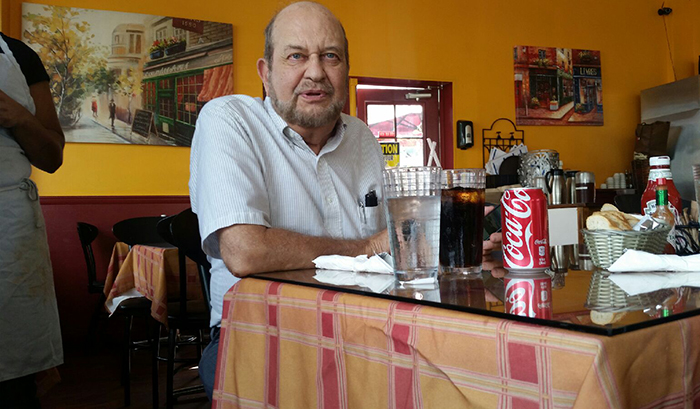Once California voters passed the 2000 Prop. 34 campaign finance initiative pushed by former Democratic Gov. Gray Davis, it was only a matter of time before state and county party chieftains became vital behind-the-scenes kingmakers.
Their unadvertised roles became clearer than ever in the last election, where it was primarily money funneled through the Democratic Party that gave the party two-thirds majorities in both the state Assembly and Senate.
Prop. 34 aimed to make state elections cleaner by setting firm limits on campaign contributions from individuals and corporations. But it set no limits on giving to political parties or how they could relay donations to candidates.
That is one reason state party endorsements can be crucial in modern elections here, like the one that lifted new U.S. Sen. Kamala Harris into office over fellow Democrat Loretta Sanchez, a 10-term congresswoman. Party money was one big reason Ms. Harris dominated their contest from start to finish and now is even being hyped as possible presidential material.
Party money proved at least as important in legislative contests.
Such cash played a huge role in the narrow upset win by Democrat Josh Newman over Republican Ling Ling Chang in an Orange County state Senate district including Fullerton. Mr. Newman, whose campaign had little cash before $2.2 million in donations arrived from the state Democratic Party and six county party organizations in various areas of the state, won by just 2,498 votes over former Republican Assemblywoman Chang. She got $1.69 million from the state GOP when it realized this seat could give Democrats the two-thirds majority they coveted.
Democratic Assemblyman Al Muratsuchi upset Republican incumbent David Hadley, who had beaten him two years earlier by just 706 votes in a district centered on Torrance. The key factor in this close race was $3.4 million in Democratic Party funds. The Democrats also gave state Senate candidate Johnathon Ervin $1.47 million in his race against Republican Assemblyman Scott Wilk. Mr. Wilk won in their Santa Clarita-area district, with the help of $1.37 million from the state GOP.
While Democratic politicians have railed for years against so-called “dark money” coming into the state from anonymous donors, they have said nothing about party funding, which often comes from the same kinds of outfits that fund dark money operations, where sources of cash are masked.
How Parties Operate
Donations to parties are disclosed. Among the largest contributors to parties last year were the No on 56 campaign organized by tobacco companies, the state’s hospital and realtor associations, Republican super-donor Charles Munger, AT&T, the California Teachers Assn., Blue Shield of California, PG&E Corp. and a wing of the Service Employees International Union.
Each party pools the money it takes in, so candidates receiving cash supposedly don’t know precisely how much they got from which special interest.
The entire process makes party chairmen among the most important players in state politics, even though they are not elected officials and don’t answer to the voters.
Prop. 34 passed handily when it was on the ballot because it was billed as a good-government measure putting tight limits on what anyone can give to candidates. It did that, but the loophole of unlimited giving to party organizations predictably rendered it ineffective in limiting special interests’ influence in Sacramento.
Meanwhile, 17 years later, it is clear that Prop. 34 was inadequate as a political cleanup measure, but rather is doing exactly what Gov. Davis and his cohorts appeared to want it to when they presented it in a season of reform fervor: Keeping the money flowing just as before, but in a masked way.
This measure, of course, could be fixed by another initiative, but there has been no significant interest in that since it passed, either by legislators or clean-government groups like Common Cause and the League of Women Voters.
Which means that for the foreseeable future, unelected party functionaries like current party chairs John Burton of the Democrats and Jim Brulte for the Republicans will continue exerting significant control over the outcome of elections and other California political issues.
Mr. Elias is author of the current book “The Burzynski Breakthrough: The Most Promising Cancer Treatment and the Government’s Campaign to Squelch It,” now available in an updated third edition. His email address is tdelias@aol.com








